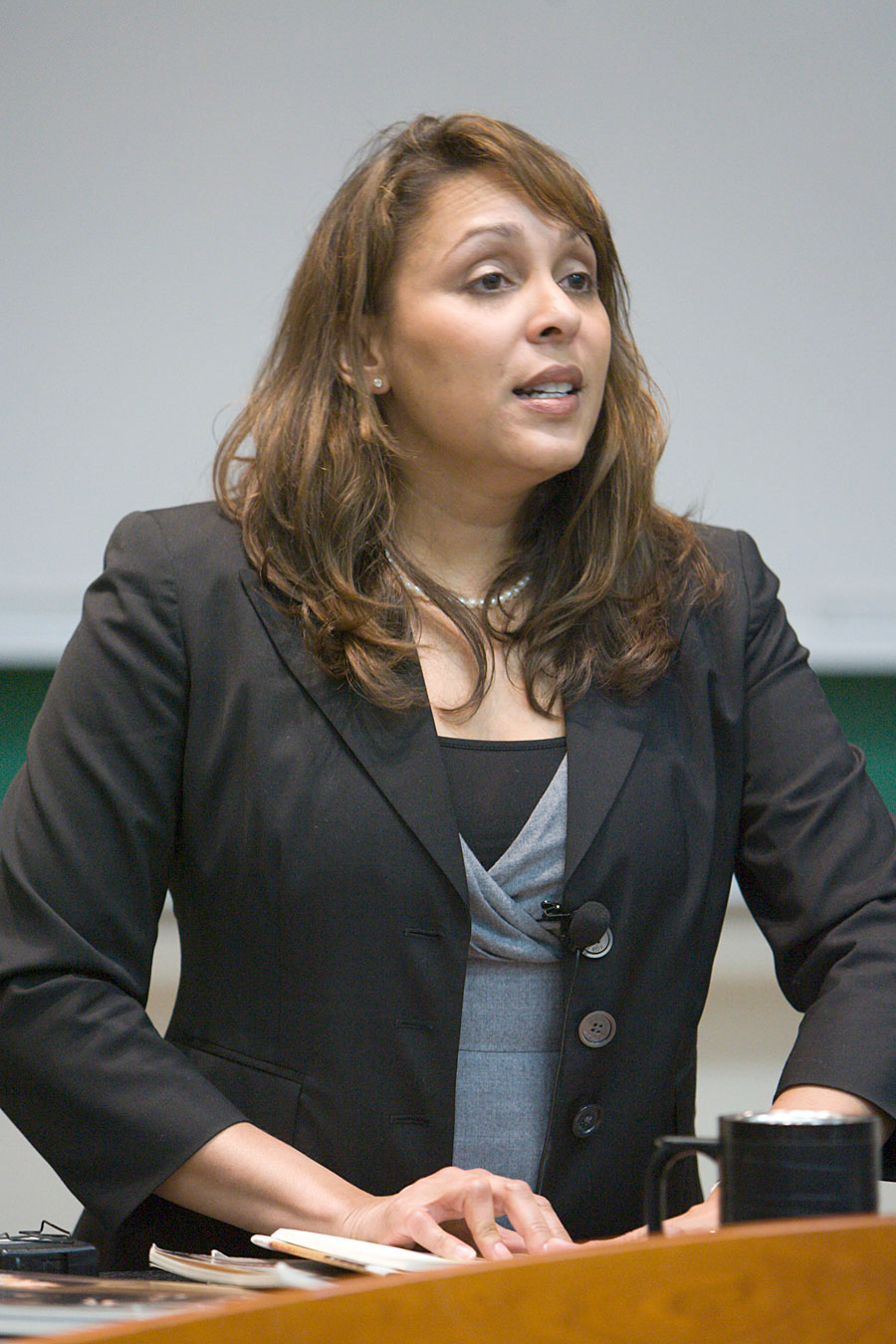College cheerleader and Pulitzer Prize-winning poet probably aren’t identities most people would associate with the same person.But they’re both true of Natasha Trethewey, who in April became the fifth UGA graduate to win an individual Pulitzer.
Trethewey, an Emory University associate professor of creative writing who received a UGA degree in 1989, won a 2007 Pulitzer for her third collection of poems, Native Guard, published in 2006.
Trethewey is UGA’s first non-journalism alumnus to capture a Pulitzer. Four graduates of the Grady College of Journalism and Mass Communication have won individual Pulitzers, and four other Grady College alumni were members of a newspaper staff that won the prize.
Although her poems have been published in many anthologies and leading literary journals and she’s received prestigious honors, Trethewey didn’t plan to be poet when she attended UGA from 1984–1989. Her main focus was cheering the Dogs to victory on the gridiron.
“Growing up in Decatur, I always wanted to be a UGA cheerleader,” said Trethewey, who was also a cheerleader in high school. “I was head cheerleader my senior year, when we went to the Liberty Bowl” (and beat Arkansas 20-17).
Trethewey was born in Gulfport, Miss., but moved to Decatur as a child after her parents divorced. Her father, an English professor and poet at Hollins College, instilled an early interest in grammar and writing, and she was always a voracious reader. She was an English major at UGA, but never took a creative writing class, enjoying instead classes taught by retired English professor Rosemary Franklin on women writers and 20th century American literature.
She also became fascinated with a subject that would prove pivotal to her success as a poet—history. As a freshman she took a class under retired history professor Charles Wynes. On the first day, he had each student write where they were born on a card. The next day, he told the class something about the history of each birthplace.
“By placing our birthplaces in a larger historical context, Dr. Wynes showed me that personal history is tied up with larger public history,” Trethewey said. “I was very impressed with that idea.”
Themes of history and cultural heritage appear in much of Trethewey’s poetry, especially her Pulitzer-winning collection, Native Guard. The titular poem and others in the volume bring to light an obscure nugget of Civil War history—a fort on Ship Island, off the coast of Gulfport, that was a prison for Confederate soldiers. The prison was protected by the Louisiana Native Guards, a regiment of black Union soldiers.
Trethewey, whose father is white and whose mother was African American, often visited Ship Island when she was young, but never heard the story of the fort. And although the Daughters of the Confederacy placed a plaque on the fort commemorating the Confederates, there is nothing to indicate the role of the black guards—an omission Trethewey sought to remedy with her poems.
Much of her poetry addresses what she calls “cultural memory and historical erasure”—events and experiences that are left out of historical accounts and references.
When her mother died during her freshman year, Trethewey tried to cope by writing poems. But she thought they were so bad she never showed them to anyone. Instead, she said, cheerleading helped her deal with the loss. Her interest in poetry was rekindled in graduate school, and she earned a master’s in English and creative writing at Hollins College and a M.F.A. in poetry from the University of Massachusetts. She taught at Duke University and Auburn before joining the Emory faculty in 2001.
Trethewey’s first poetry collection, Domestic Work, was published in 2000 and was chosen by former U.S. Poet Laureate Rita Dove to receive the inaugural 1999 Cave Canem prize (for the best first book by an African-American poet) and the Lillian Smith Award. Her second collection, Bellocq’s Ophelia, published in 2002, was named a 2003 Notable Book by the American Library Association.
A Legacy of Winners
Four graduates of the Grady College of Journalism and Mass Communication have received an individual Pulitzer Prize. They are:
• Eugene Patterson, a 1943 graduate, who received the Pulitzer in 1967 for editorial writing while serving as editor of the Atlanta Constitution;
• Randall Savage, a 1972 graduate, and Jackie Crosby, a 1983 graduate, who received a Pulitzer in 1985 while working as reporters for the Macon Telegraph and News; and
• Deborah Blum, a 1976 graduate, who won a Pulitzer in 1992 while working as a reporter for the Sacramento Bee.
In addition, four Grady alumni were staff members of the Columbus Ledger-Enquirer when it won the 1955 Pulitzer for public service. They are Marvin Wall, a 1949 graduate; Ray Jenkins and Millard Grimes, both 1951 graduates; and Claude McBride, a 1955 graduate.


